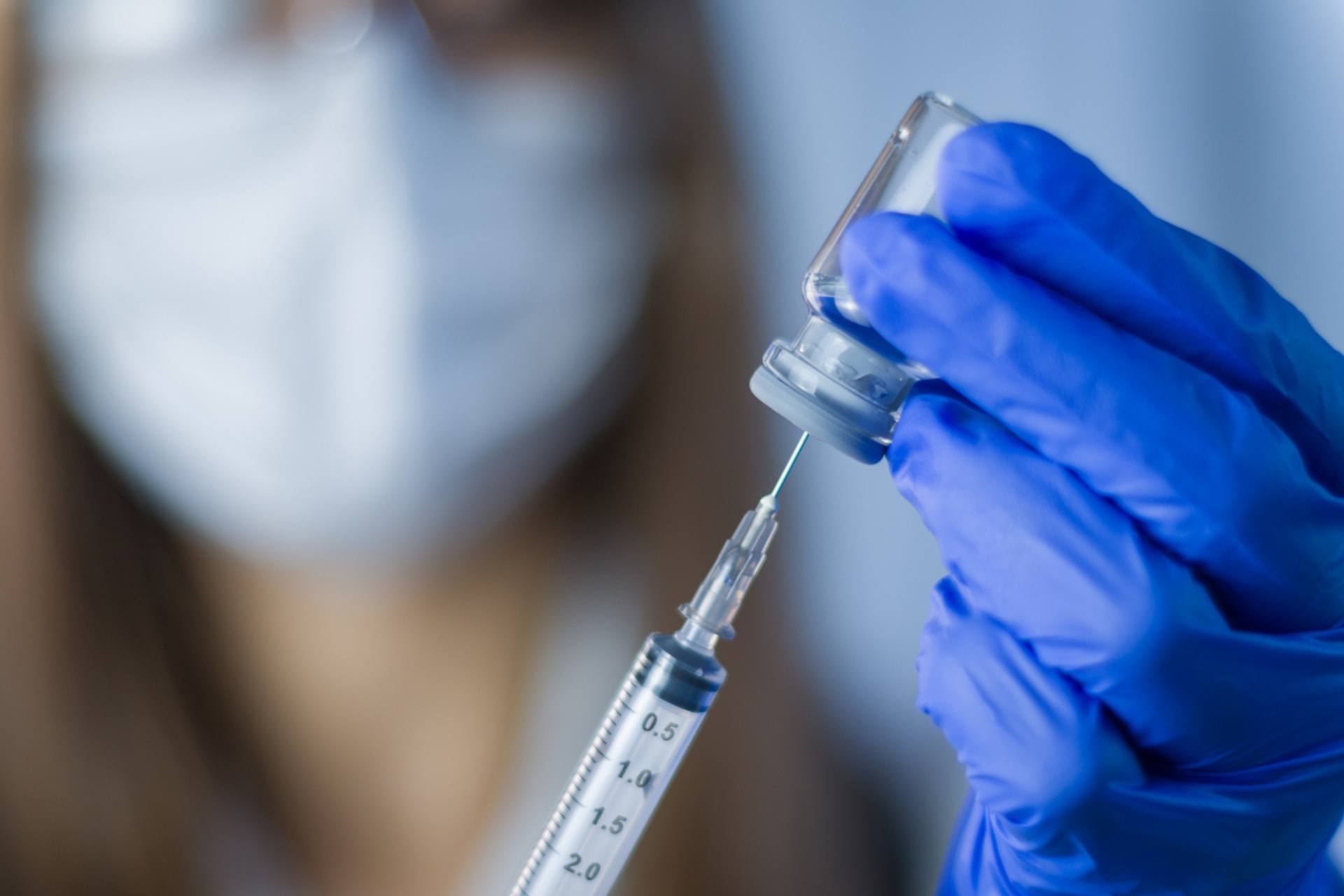There are thousands of injectable medications available to treat a variety of conditions. This includes chronic diseases such as diabetes, long-lasting pain, and even preventing illness, such as vaccines. However, sterile injectable manufacturing presents several associated risks. This can include contamination during the manufacturing process and damage to the packaging or the product that occurs in shipping, which can contaminate the drug and render it dangerous. These issues can harm the patient receiving the injectable, as well as financial impacts and liability for the manufacturer.
A contract manufacturing operation (CMO) provides small-batch manufacturing of thousands to tens of thousands of units. Preparing these small batches quickly is particularly useful for clinical trials or exclusive commercial drug products, including injectables. Despite the low volume batches produced, a CMO is under the same safety regulations as drug manufacturers who fill large-scale orders to eliminate cross-contamination and other issues that can arise in the sterile injectable manufacturing process.
Understanding the Risks in Sterile Injectable Manufacturing
Injectable medications are placed directly into a patient’s muscle or bloodstream. However, non-sterile injections can deliver more than just the medication. They can also introduce harmful bacteria, yeast, or molds that can cause the patient to incur an infection that can make them sick or even result in death.
Sterile production processes are one of the biggest challenges for CMOs. Having a user of the product they manufacture become ill or die after use is not only harmful to the company’s reputation. Still, it can also make them and their pharmaceutical partner liable for compensating the individual or their family members for the financial and psychological impact of the harm they sustained.
Quality Systems and Risk Management in Sterile Injectable Manufacturing
The US Food and Drug Administration (FDA) requires CMOs and other drug manufacturers to perform a risk analysis. This can help detect potential issues in their sterile injectable manufacturing processes. Manufacturers must develop a quality assurance system to ensure the sterility of products such as vials and syringes used in administering the injectable, raw materials, and finished product.
Some of the tests that injectables undergo before ultimately being shipped to healthcare providers and used on patients include:
- Assay by HPLC/UV-vis
- Content Uniformity
- Identification Testing
- Related Compounds/Impurity Testing
- Residual Solvents Testing
- Forced Degradation Studies
- Antimicrobial Effectiveness Testing
- Container Closure Integrity Testing (CCIT)
- Water Content/Moisture Analysis
- USP Compendial Testing
- ICH Stability Testing
Several agencies audit CMOs each year. This includes the FDA, the Medicines and Healthcare Products Regulatory Agency (MHRA), and the Pharmaceutical and Medical Devices Agency. A reputable CMO will subject its products to more than a dozen audits to ensure product safety.
Role of Technology in Ensuring Product Safety
Advanced sterile injectable manufacturing technologies have been developed to improve safety and quality. Some of the types of technologies available include:
- Aseptic processing and barrier systems
- Process automation and control
- Quality control and monitoring through data analytics and predictive modeling
- Real-time monitoring of critical parameters
- Statistical process control and trend analysis
Afton Scientific employs all of these manufacturing technologies within its 35,000 sq. foot manufacturing, lab, warehouse, and administrative space to maintain our good standing with the FDA, PDMA, and MHRA and our commitment to our customers in providing contamination-free drug manufacturing and delivery.
Supply Chain Control and Traceability
A critical component to ensuring a quality injectable product is testing the raw material before placing it into a sterilized container and ensuring it remains sterile throughout the supply chain. CMOs manage supply chain control and traceability through stringent supplier qualifications, monitoring processes, and risk-based supplier audits and inspections.
Implementing traceability systems provide CMOs with end-to-end visibility of the entire supply chain process through serialization and track-and-trace technologies. Afton Scientific has protocols in place to manage potential recalls of contaminated products. This way, we can rapidly respond and are ready to determine which part of the process resulted in the contamination. Read more …
Training and Employee Competency
With so much on the line in terms of patient safety, compliance with safe manufacturing process standards for injectables, and even the reputation of the CMO, it goes without saying that providing employee training and ensuring the competency of all who work in the manufacturing environment is a crucial part of ensuring quality injectables.
Afton Scientific requires all employees to undergo GMP training and adhere to standard operating procedures. However, our commitment to the matter doesn’t stop with a single GMP certification. We offer ongoing educational opportunities for our team and continuous improvement initiatives.
More Information About Employee Training to Ensure Product Safety
Regulatory Compliance and Audits
Proactive regulatory compliance measures by CMOs include:
- Staying updated with regulatory requirements and guidelines
- Internal audits and compliance assessments
- External audits and inspections to ensure adherence to standards
- Collaboration with regulatory authorities and industry associations
- Addressing audit findings and implementing corrective actions
Partner with Afton Scientific to Mitigate Your Risks and Provide Safe Products
Patient safety and regulatory compliance are the most significant issues in providing injectable products for clinical trials or commercial use. Product liability laws allow anyone in the manufacturing chain to be held responsible if a patient is harmed by a non-sterile product, from the raw product producer to the manufacturer, shipper, and even the physician delivering the injectable.
CMOs provide comprehensive training for their employees and develop systems and monitoring protocols to mitigate legal and financial risks. They adhere to the best sterile injectable manufacturing processes and open these processes up for auditing from outside agencies.
Pharmaceutical companies must partner with CMOs prioritizing risk mitigation and product safety rather than simply focusing on getting the product out as quickly as possible. Afton Scientific has partnered with pharmaceutical companies in 18 countries to provide them with safe injectable products. Contact us for more information about our services and how we can help you with your latest project.
